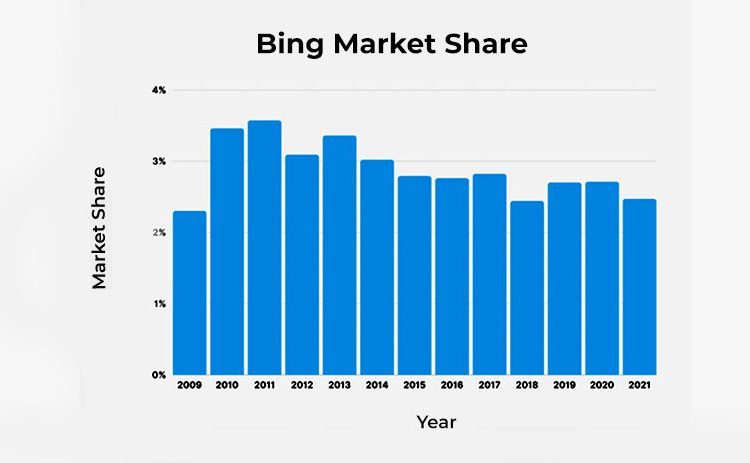Bing: Rising as a Formidable Powerhouse in Search Engine Industry
Bing, introduced by Microsoft in 2009, has been a strong competitor to Google in the search engine market. It replaced Microsoft’s previous search engine, Live Search, and was chosen for its simplicity, memorability, and global resonance. Bing is not just a search engine, but also offers services such as Bing Ads, Bing News, Bing Maps, Bing Images, and Bing Videos.
The evolution of Bing reveals Microsoft’s commitment to innovation and improvement. In 2012, Bing introduced the ‘Snapshot’ feature, providing users with a summary of relevant information related to their search query. This was followed by the ‘Sidebar’ feature, integrating social media into search results. In 2013, a new logo and a redesigned interface were unveiled, marking a shift in Bing’s strategy. Bing also started integrating with other Microsoft products, creating a cohesive ecosystem. In 2015, Bing introduced Bing Predicts, a feature that used search, social, and other relevant data to predict the outcomes of events.
Bing offers unique features, such as a daily changing background on its homepage, Bing Places, Bing Video search, and Microsoft Rewards. Bing Places allows business owners to create a listing for their business on Bing. Bing Video search offers a grid-style preview that allows users to watch videos directly from the search results. Microsoft Rewards incentivizes users to use Bing by offering points that can be redeemed for various rewards.
Bing has significantly impacted digital marketing, with Bing Ads allowing businesses to post pay-per-click advertisements on both the Bing and Yahoo networks. Bing Ads has been gaining popularity due to its lower cost per click compared to Google Ads. Bing’s integration with Microsoft’s digital assistant Cortana and Amazon’s Alexa has also opened up new avenues for voice search optimization.
Despite Google’s dominance, Bing has managed to secure a significant share of the search engine market, particularly in the United States. As of February 2021, Bing accounted for 6.7% of the global search market. Microsoft’s continued investment in Bing and its integration with other Microsoft products suggests a promising future for Bing. It is the default search engine for Microsoft Edge, the default browser for Windows 10, and is integrated with Microsoft’s digital assistant, Cortana.
In summary, Bing is more than just a search engine. It is a comprehensive web service that offers a range of features designed to enhance the user experience. While it may not have the market share of Google, Bing has established itself as a formidable competitor, continually innovating and evolving to meet the needs of its users. With Microsoft’s backing, Bing is set to continue pushing the boundaries of what a search engine can offer.



